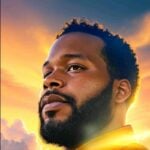The Dartmouth College men’s basketball team, commonly known as “the Big Green,” etched its name in sporting history March 5, becoming the first college athletic team certified for union representation. The groundbreaking move sent shockwaves through the NCAA, igniting a national conversation about the rights and compensation of college athletes.
With a vote of 13-2, the Big Green players chose to join the Service Employees International Union Local 560 (SEIU).
“Today is a big day for our team,” said Dartmouth College juniors Cade Haskins and Romeo Myrthil, who led the unionization effort, in a statement. “We stuck together all season and won this election. It is self-evident that we, as students, can also be both campus workers and union members. Dartmouth seems to be stuck in the past. It’s time for the age of amateurism to end.”
The decision came after a successful petition to the National Labor Relations Board (NLRB), which ultimately classified the players as university employees. The classification came after players realized they received free equipment and apparel from the college. Dartmouth, however, has appealed this decision, setting up a potential legal battle with wide-ranging implications.
“For decades, Dartmouth has been proud to build productive relationships with the five unions that are currently part of our campus community. We always negotiate in good faith and have deep respect for our 1,500 union colleagues, including the members of SEIU Local 560,” Dartmouth administration said in a statement following the vote to unionize. “In this isolated circumstance, however, the students on the men’s basketball team are not in any way employed by Dartmouth.”
More News: Union inks new deal, avoiding strike

The potential impact of a Dartmouth players’ union extends far beyond Hanover, New Hampshire. If the NLRB upholds the initial decision and the unionization effort prevails, it could pave the way for athletes across all sports and universities to follow suit. The unionization could alter the college athletics landscape by potentially leading to negotiations or restructured Name, Image and Likeness (NIL) deals.
College athletes generate billions of dollars in revenue for the NCAA and universities; however, they are not allowed to be paid for their work. A formed union could bring about change, enabling athletes to share in the profits they help create. Unions could also negotiate guaranteed scholarships throughout a player’s athletic eligibility, even in the event of injury.
The bargaining chairman of UAW Local 933 in Indianapolis, George Freeman III, who was integral in securing better wages and work conditions at Allison Transmissions, briefly spoke with the Indianapolis Recorder about the benefits of the unprecedented move by Dartmouth’s men’s basketball team.
“Overall, it’s a win for the labor movement and the [Dartmouth] university basketball team players,” Freeman said.
Currently, the NCAA provides limited health care benefits to athletes, but unions could push for comprehensive health care coverage. Unions could also advocate for better academic support services and more flexibility in scheduling classes.
More: Sysco strike stops, union forms new terms
The Dartmouth unionization effort has garnered national attention. Supporters highlight the growing commercialization of college athletics and the lack of fair compensation for athletes. Opponents argue that unionization would erode the amateur nature of college sports and potentially lead to professionalization at the collegiate level.
“For Ivy League students who are varsity athletes, academics are of primary importance, and athletic pursuit is part of the educational experience. Classifying these students as employees simply because they play basketball is as unprecedented as it is inaccurate. We, therefore, do not believe unionization is appropriate,” Dartmouth administration said in a statement.
When asked about the Dartmouth unionization effort, the athletic department at Butler University, which boasts its own local men’s college basketball team, declined to comment because the decision is in its infancy.
“Let’s work together to create a less exploitative business model for college sports,” Haskins and Mythril said in a statement. “Over the next few months, we will continue to talk to other athletes at Dartmouth and throughout the Ivy League about forming unions and working together to advocate for athletes’ rights and well-being.”
Contact senior sports writer Noral Parham III at 317-762-7846 or via email at noralp@indyrecorder.com. Follow him on Twitter @3Noral. For more news courtesy of the Indianapolis Recorder, click here.
Noral Parham is the multi-media & senior sports reporter for the Indianapolis Recorder, one of the oldest Black publications in the country. Parham has worked with various leagues to provide a diverse perspective in sports, including the Big Ten, Big East, IHSAA, IndyCar, MLB, NHRA, NFL, NBA, WNBA, WWE and the Olympics. Prior to joining the Recorder, Parham served as the community advocate of the MLK Center in Indianapolis and senior copywriter for an e-commerce and marketing firm in Denver.








